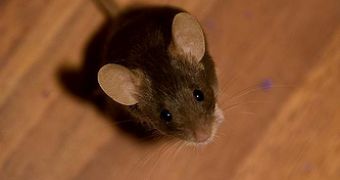A team of researchers from Eastern Virginia Medical School have discovered a possible new treatment strategy for socially impaired people suffering from Autism Spectrum Disorders (ASD), and they are moving toward a small-scale clinical trial.
For their research, EVMS scientists used a certain mouse strain, called the Balb/c mouse, since they observed that it was a valid animal model for people with ASD and limited sociability – the Balb/c mouse, when in the presence of another mouse, moved as far away as possible from it, and avoided normal interaction, just like people with autism often avoid having social contact with other people.
Having a reliable model, the researchers tested whether existing medication would be able to alter the function of certain receptors in the brain, that affect sociability, and help the animals be more sociable.
They tested D-Cycloserine, which was a medication originally used to treat tuberculosis, but by chance, proved to possibly change social behavior.
Preliminary tests showed that the medication solved the sociability problems of the Balb/c mouse, allowing it to behave like a normal mouse when placed near another.
As a consequence, the researchers concluded that D-Cycloserine could help people with autism get rid of their social impairment, which often made them avoid eye contact of personal interaction.
This kind of behavior is really affecting a person's quality of life, limiting their employment possibilities and their chance to an independent life.
Maria R. Urbano, MD, associate professor of psychiatry and behavioral sciences said that “what makes this important is you might have someone with a 125 or 130 IQ who's unemployable” because of their social impairments.
“Persons with Autism Spectrum Disorders are either disinterested in social interactions or find them unpleasant.
“They often don't understand what other people are thinking or feeling and misinterpret social cues," explained Stephen I. Deutsch, MD, PhD, the Ann Robinson Chair and professor of psychiatry and behavioral sciences.
“Sadly, persons with autism spectrum disorders are often painfully aware of their limited sociability, which can lead to profound feelings of sadness and frustration.”
Dr. Urbano is speeding up things by starting a pilot clinical trial of D-Cycloserine in adolescent and young adult patients with autism spectrum disorders, thus getting one step closer to patient care.
If the trial proves to be as successful in humans as it was in mice, many people will get a chance to a better life.
The research is supported by a grant from the Hampton Roads Community Foundation.

 14 DAY TRIAL //
14 DAY TRIAL //